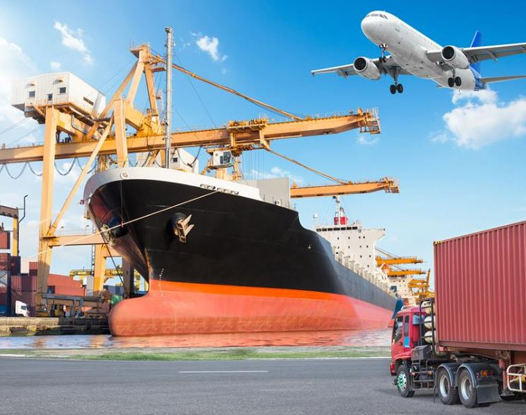Cargo Expedition: The Backbone of World Commerce and Connectivity
Cargo Expedition: The Backbone of World Commerce and Connectivity
Blog Article
Cargo journeys are the backbone of international trade, ensuring the seamless movement of products across borders as well as continents. They play a critical role in connecting suppliers, manufacturers as well as consumers, helping to boost the growth of global markets. From transporting raw materials for production to delivering finished goods to markets, cargo expeditions make sure supply chains function efficiently. In the midst of rapid globalization, the demand for efficient and reliable shipping services has grown significantly making the sector an extensive infrastructure of logistics, technological and infrastructure. Any successful trade deal either large or small relies on the success of cargo operations.
The flexibility of cargo trips comes from their ability in adapting to a variety of modes of transport to meet specific shipping requirements. The speed of air freight is unbeatable and is ideal for high-value or time-sensitive shipments like medical and electronic equipment. Ocean freight dominates on the scale of quantity as it allows the movement of bulk commodities, such as crude oil, agricultural products, and automobiles. Land transportation, including trucks and rail networks, connects airports, ports, and ports with the final destination, offering efficient logistics solutions. Integration of these transport methods into multimodal systems enables cargo operations to find an equilibrium between efficiency, cost, and delivery timelines, making them indispensable for businesses of any size.
The logistics of cargo expeditions require meticulous planning and coordination of various players such as freight forwarders, shipping companies, customs brokers as well as the final consumers. Businesses must think about a range of variables, such as routes, transport times, the possibility of delays, as well as customs regulations, all of which affect the overall cost and efficiency of the delivery. As an example, customs rules can play an important role when shipping internationally, since the goods have to clear customs prior to departing or entering a country. Incorrect documentation or failure to adhere to regulations can lead to delays that add to expense and adding to the process. Efficient cargo management, therefore requires a higher degree of coordination and expertise to manage these challenges and to ensure prompt delivery.
As the world's logistics market is growing tech has played a growing role in the development of cargo-related expeditions. The latest developments in tracking systems as well as digital documenting and automatic Cargo Expedition handling are changing the manner in which goods are handled throughout the process of expedition. Technology like RFID and GPS allow the tracking of goods in real time, providing both the shipping firm and the customers with accurate information regarding the location of the cargo. Technology advancements make it easier to monitor the status of cargo, making sure that delay or problems are swiftly dealt with. In addition, digitalization has helped streamline procedures for documentation, decreasing the need for paper-based records and making customs clearance much more efficient. To generate new details please visit Muat
Environmental sustainability has become an ever-growing concern for the sector of cargo transportation. The transport industry, especially air and sea freight, is a significant contributor to worldwide carbon emissions. As the world faces growing environmental challenges, many companies work to lessen the environmental impact of cargo transportation. This has led to developments like energy-efficient shipping vessels, the usage of biofuels for aviation and the invention of electric trucks for land-based deliveries. Many logistics providers are also focused on cutting down on fuel usage by utilizing more efficient routes and grouping deliveries to decrease the number of journeys required. Greener and more environmentally friendly practices during cargo journeys isn't just beneficial to the environment but also for businesses, because consumers and the government are increasingly choosing companies that employ environmentally sustainable ways of doing business.
Cargo journeys are an essential component of modern-day commerce, helping bridge the gap between production and consumption at a global level. They rely on advanced transportation technologies, advanced systems as well as sustainable practices, to meet the requirements of companies and consumers. Their commitment and knowledge of logistics experts ensure seamless operation of supply chains, making cargo expeditions a key driver of economic development. As the business continues to change, it will always be in the forefront of global commerce, helping to shape the flow of trade and helping to build connections across boundaries. The future of cargo operations is in collaboration, innovation, and a steadfast dedication to quality.